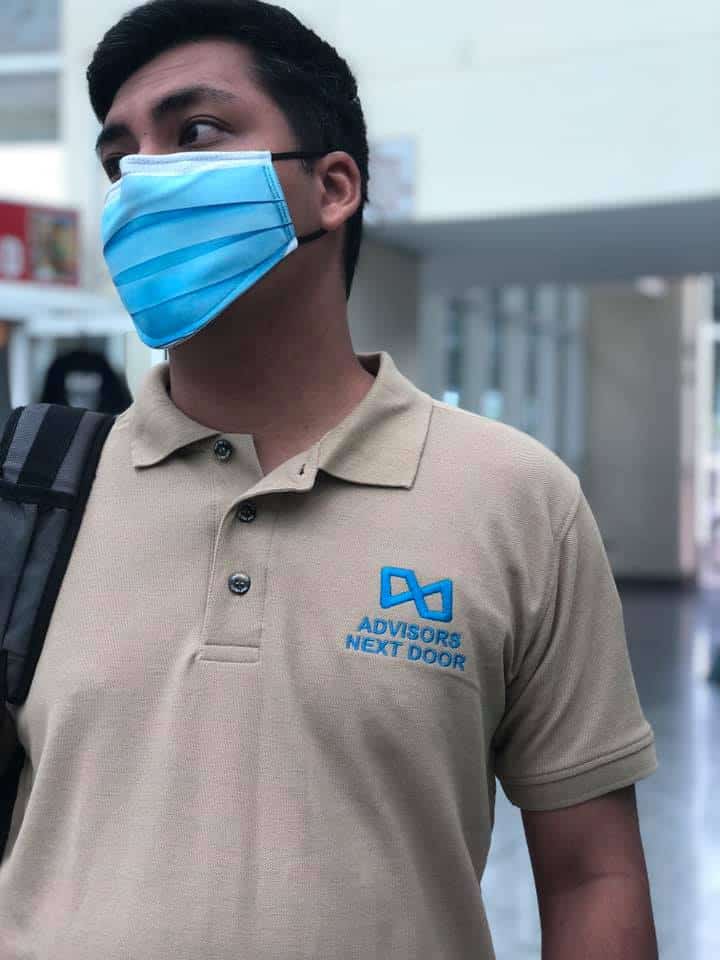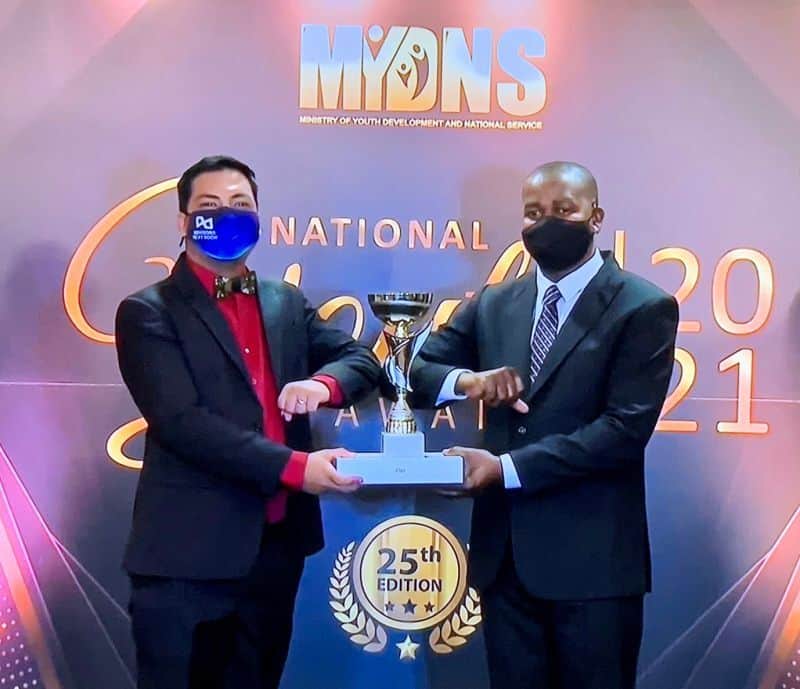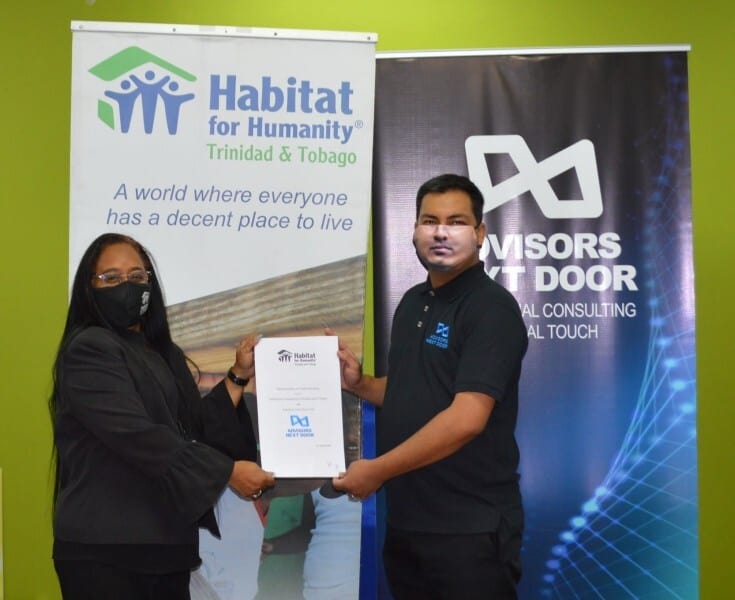Ryan Assiu of Advisor’s Next Door Limited did not enter the environmental field through external influences. Rather, it just happened serendipitously.
“There wasn’t an epiphany, I just went to school and got shuffled into it in a way. What was different is that I didn’t choose the normal science subjects.”
Assiu’s interest in the environment started off casual and gradual. He knew early on that he did not want to follow the traditional doctor/lawyer path to success. In his studies, he angled himself towards biology and environmental studies.
“After secondary school, I did a degree in Environmental and Natural Resource Management at the University of the West Indies, St Augustine. In that degree programme I started to really like climate change as a topic. It intrigued me and I knew that it would become a more prominent issue in years to come.” He received a national scholarship to pursue a Master of Science in Climate Change and Sustainability at Antioch University New England.

“We all find ourselves in the environmental sector in diverse ways. What I have found is that for the sector to progress, you can’t only have the people that have the nice stories of falling in love with the environment at a young age and chasing their passion. You need people that get their start from a business standpoint or a science standpoint or from an art standpoint and it is only all together that we will be able to deal with the kinds of crisis and challenges we face in the environmental sector. It requires a multidisciplinary approach. If everyone in the environmental field were ‘tree huggers’ and people with strictly environmental backgrounds, there would not be any diversity among our group to actually affect the kind of change that we need. My introduction to the sector may not be the most traditional but I know I’m a different piece in the puzzle.”
About working for the Environmental Management Authority (EMA)
Amidst getting his degrees he interned at National Energy under the mentorship of the late Dr. Reeza Mohammed, Trinidad and Tobago’s first Minister of the Environment, and served as a Research Assistant at his post-graduate University. In 2013 he joined a then nascent Strategy and Research Unit at the EMA and by 2014 he held the title of ‘Research Officer’ – his first “big boy” job.
“I wanted to take all the things I had learned from all these other places, and I wanted to create more value-adding things for the EMA, a legacy that will stay there.”
He spent his time there learning and absorbing as much information as he could and giving back as much as he could. As time passed, he maintained his position, but his workload grew.
“When you are early in your career being in a position to learn and grow outweighs remuneration and benefits. Learning outweighs earning. But, it got to a point when i was entering my 8th year that I became removed from that position of abundant learning and was now seen as ‘the expert’ in certain areas. People were coming to me for information rather than me going to them. Whilst there is nothing wrong with that, the value of the trade-off had changed. The salary was not commensurate with the experience I held and the networking and learning opportunities reduced.
It got to that point at the end of it where I had to make some shifts. When I started, I was 24 years old but by 31 my life was quite different. I got married, I have a family to look after, my parents were about to retire so my personal life priorities have shifted and because of that a career shift was also necessary. What was working for me at 24 was no longer working for me at 31. I also had a personal desire to explore other facets of the environmental sector beyond working in government.”
Assiu did achieve his goal in leaving behind a legacy. He was the first Project Coordinator for the iCare Project which is our national recycling program. It won the President’s Award for Public Servants Excellence in 2019. His contributions also include significantly contributing to the preparation of the 2018 National Environmental Policy, developing models to help the EMA determine environmental impact of projects, collaborating with the Ministry of Planning and Development to advance key pieces of the national climate change transparency system, and supporting the EMA’s first steps towards becoming a direct access entity to the Green Climate Fund. Of his time there, he says, “The EMA is a great place that I will forever cherish. It staffs some of the most brilliant, enthusiastic, and diligent people I have ever met. If I have seen more or achieved more, it is because I stood on the shoulders of giants. My success is testimony to the wonderful connections and growth only available through the EMA.”
Becoming the Advisor Next Door
In November 2020, Assiu left the EMA and established a multidisciplinary consulting practice focused on environmental and financial services – a decision inspired by his positive experiences shadowing and free-lancing as a consultant outside of Trinidad and Tobago with David Simmons and Associates since 2016.

“One of my other role models is the Managing Director of the EMA, Mr. Hayden Romano. He once advised me that your twenties are your learning years. Those are the years you learn and build your expertise and your thirties are your earning years and that is when you step out and use that expertise and generate the type of wealth that you need to get to that next stage of your life. That is where I am right now, the next stage of my life and it has been amazing. I’ve started my own company and we’ve done well in the last 12 months.”
Within a year, Advisors Next Door Limited has undertaken projects across three Caribbean countries and boasts a roster of over 100 environmental specialists. The Environmental Services Division, which he heads focuses, on preparing and implementing environmental policies and programmes for governments and organisations.
“We do a lot of work in climate change and sustainability. Building community resilience and helping organisations address their environmental, social and governance challenges are key. We are also keen on youth empowerment, focusing on capacity building programmes and providing a mentorship space for recent university graduates to learn the real ins-and-outs of the sector through our Advisors Academy.”
For his work in translating climate change science to policy, and empowering young professionals, Assiu was awarded the 2021 National Youth Award for Excellence in Science and Technology last November.
Lessons learned along the way

“Mental resilience is important because the environmental sector is not easy. It is not a career where you can find easy solutions to a problem. Like you could go to a doctor, get some medication and within two weeks you are cured and the doctor gets the gratification of helping you recover. Environmental problems are not solved immediately and easily, especially when it comes to problems like climate change which is global and has been ongoing for decades. It may not be solved within your lifetime. Just being optimistic and having a good self-esteem is not enough, resilience is a practice that needs to be nurtured. You need to practice gratitude and realize that the world exists in a constant state of tension between becoming a dystopian nightmare and a perfect utopia. All our actions push the planet one way or the other. You may feel dejected at times and ask yourself ‘what is the point?’ or ‘what difference does it make it make to try?’ However, you must remember that each step, no matter how small, is still a towards the better world.”
Additionally, he says, “Reshaping your thinking goes a long way towards mental resilience. Condition yourself to see the ‘little wins’ and celebrate them. Never start a sentence with, “I have to.” Do not say, “I have to” because you might not realize it, but the language alone shapes your mindset. “Have” fills you with a feeling of obligation, there is a weight on it. Instead, practice saying “I get to.” Now it changes completely because now your brain does not see it as a burden but more as an open door and opportunity, something you get to do and something you’re excited to do.”
Overcoming the challenges that comes with working in the environmental sector boils down to these two points.
1) A holistic perspective of understanding that every little bit makes a difference.
2) A personal approach of reshaping your mindset towards gratitude and opportunities.
“It’s not just about finding the good, but it is about recognizing that it is good. How you shape the narrative to yourself is what changes your attitude towards things, and attitude is 99% of success”.





